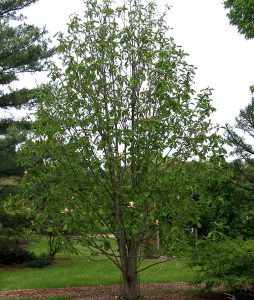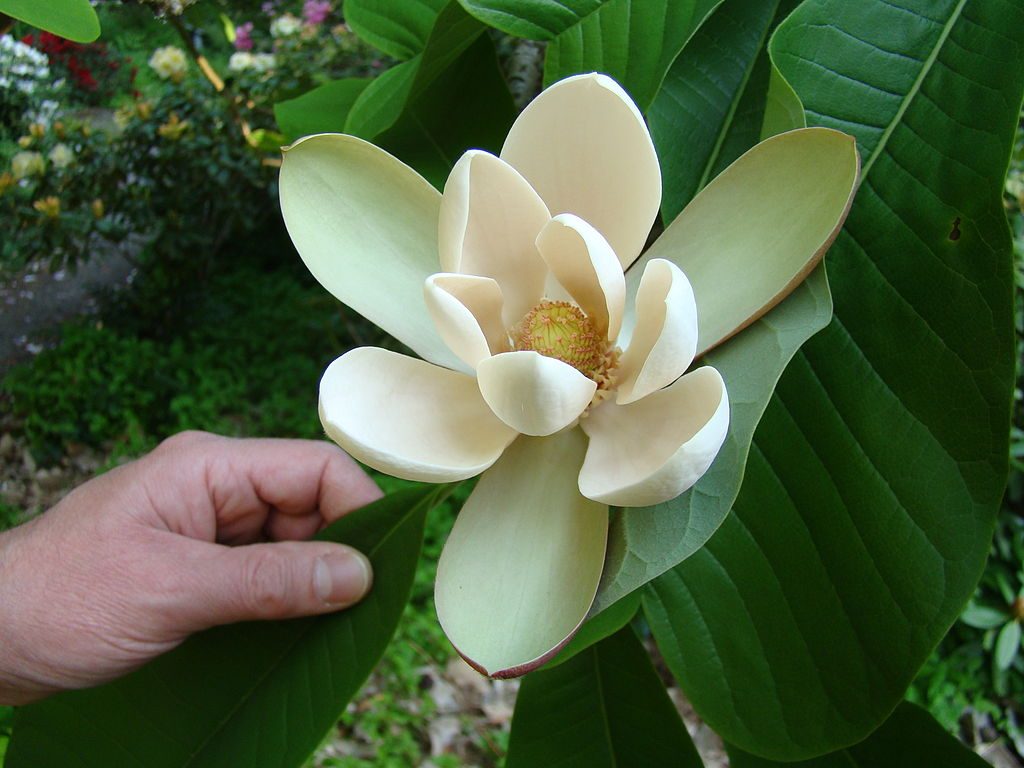Traditional Chinese herb magnolia officinalis may improve mood balance and help with memory decline.

- Reduction of anxiety. Magnolia has been taken as a stress and anxiety-reducing herb for thousands of years.
- Amelioration of Alzheimer’s. Early mouse studies indicate that magnolia may help with memory decline.
Overview
Magnolia officinalis is a tree species whose bark has been used in traditional Chinese medicine to treat neurological conditions such as stroke, anxiety, stress, depression, and headache. It contains a number of biologically active compounds, including honokiol, magnolol, and 4-O-methylhonokiol, which have have been shown to have antibacterial, anti-inflammatory, and anti-allergic properties.
Animal studies of Magnolia officinalis and its main constituents suggest that it has several nootropic effects, including the reduction of anxiety, depression, and memory impairment. However, Magnolia officinalis has seen little to no human research.

How Magnolia Officinalis Might Help the Brain
Reduced neuron activity
Gamma-Aminobutyric acid (GABA) is a neurotransmitter which reduces neuron activity and results in the reduction of anxiety. One of the ways magnolia is believed to work is by enhancing the brain’s GABA activity and transmission.
Potential antioxidant activity
Some of the compounds found in magnolia, such as honokiol and magnolol, have been found to reduce oxidative stress in the brain, which may be particularly useful for warding off Alzheimer’s.2
Potential support of acetylcholine
Deficiency of the neurotransmitter acetylcholine has been associated with memory impairment, especially in Alzheimer’s patients. A study done in mice reported that magnolia officinalis extract and 4-O-methylhonokiol in particular reduce the activity of acetylcholinesterase, an enzyme which breaks down acetylcholine.
Magnolia Officinalis Potential Uses
Magnolia supplements are typically taken to reduce anxiety and stress and support sleep. However, research evidence is scarce. Furthermore, the few human studies of magnolia are limited by its combination with another traditional herbal extract — Phellodendron amurense –which makes it difficult to say whether the effect is the same with magnolia alone.
Research
Animal Research
Mix of honokiol and magnolol from magnolia appears to have an antidepressant-like effect in mice
This study tested the potential antidepressant effects of Magnolia officinalis. Mice were then given a mixture of honokiol and magnolol – the two major bio-active components of magnolia — while undergoing conditions that simulate depression, such as the forced swimming test (FST). The mixture improved performance during the tests, and was also found to influence levels of some brain chemichals, such as serotonin.
- The researchers concluded that “These results suggested that the mixture of honokiol and magnolol possessed potent antidepressant-like properties“3
4-O-methylhonokiol from magnolia appears to reduce anxiety in mice
This study tested whether 4-O-methylhonokiol from magnolia officinalis can reduce anxiety. Mice administered 4-O-methylhonokiol showed improved performance on several tests of anxiety, such as the elevated pus-maze test.
- The researchers concluded that “4-O-methylhonokiol may have anxiolytic-like effects“4
Magnolia extract may improve memory in mice with Alzheimer’s
This study looked at the effects of magnolia on memory in a mouse model of Alzheimer’s. Two magnolia extracts were given to two groups of Alzheimer’s mice at 10mg/kg for 3 weeks. Researchers then tested the memory performance of the two experimental groups and a control group of untreated AD mice.
The magnolia groups performed significantly better than untreated mice on all memory tests. Brain tissue samples from the treated mice also showed a significant reduction—from 20-60%—in the formation of the beta-amyloid plaques associated with Alzheimer’s.
- Researchers concluded that “oral treatment of all [Magnolia] products…significantly ameliorated memory dysfunction in the AD model mice” 5
Magnolia extract may improve Alzheimer’s by supporting acetylcholine
This study examined whether magnolia extract could reverse memory impairment caused by low acetylcholine. Five groups of mice were injected with scopolamine, a drug that causes memory impairment, and then given either magnolia extract (5 or 10mg/kg body weight) or 4-O-methylhonokiol (0.75 or 1.5 mg/kg) .
Mice supplemented with magnolia extract or 4-O-methylhonokiol performed better in memory tests than those that received only scopolamine. Brain tissue samples of the treated mice also revealed decreased activity of acetylcholinesterase (AChE), the enzyme that degrades acetylcholine.
- The researchers concluded that, “extract of Magnolia officinalis and its major ingredient, 4-O-methylhonokiol, may be useful for the prevention of the development or progression of AD” 6
Human Research
The only human studies of magnolia officinalis to date looked at a patented blend (Relora) which also contains another Chinese herb – Philodendron amurense. As such, it’s difficult to isolate the effects of magnolia alone.
500mg per day of Relora extract improves mood and decreases stress in humans
This randomized, double-blind study examined the effects of Relora — a patented product containing magnolia officinalis and phellodendron amurense extracts standardized to 1.5% honokiol and 0.5% berberine — on stress. Sixty healthy volunteers with moderate stress were given Relora (500 mg) or placebo daily for 4 weeks.
After 4 weeks, the Relora group showed an 18% decrease in cortisol – the main stress hormone. The group also reported improvements in mood including reduced stress, increased mental and physical energy, and lower levels of anxiety and depression.
- The researchers concluded that “daily supplementation with a combination of magnolia bark and phellodendron bark (Relora) is an effective natural approach to the detrimental health effects of chronic stress” 7
Nootropic Dosage
- The Relora study showed reductions in stress and negative mood states at a dose of 500mg per day, divided into two servings of 250 mg
- Most commercial Magnolia officinalis supplements recommend a dose of between 200-800 mg per day, usually divided into 1-2 servings
Supplements in Review Says
- Magnolia officinalis as Relora 300 mg 1-3 times daily.
Magnolia officinalis may be able to reduce stress and anxiety. Although there isn’t a lot of research evidence, magnolia’s long history of traditional use and lack of negative research findings warrants giving it a try.
Relora is the only form of magnolia tested in human trials. Although Relora contains another active compound, it is the only magnolia officinalis supplement to have been successfully tested in humans and shown to have a stress-reducing effect.
Leave a Reply